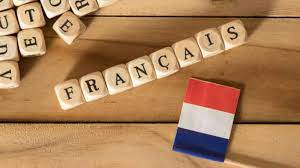The Top Reasons Why People Fail to Learn French
Learning the French language appears to be a difficult task if you’re an English speaker. But, fortunately, it’s a lot easier to understand than you may imagine. You have a significant edge in studying the French language if you are a native English speaker. We’ve broken down all the reasons why learning French can be difficult, as well as how to overcome them. If you use the correct learning methods, you can learn French quickly.
1. Pronunciation of French Can Be Difficult
The French language is lovely. However, to properly speak the “language of love,” you must pronounce it. Pronunciation can be an issue for English-speaking speakers, and the way French people pronounce things makes English speakers’ brains spin.The French language pronunciation may be difficult because it has sounds with which native English speakers are unfamiliar. To begin with, French has a more uniformly distributed stress pattern, and the distinction of words is not as straightforward as in English. With nasal vowels, back of the throat “rs,” and silent letters, pronunciation is one of the most challenging aspects of learning French.
2. French language has a lot of accent marks
Even though French language has the same number of vowels as English, there are several accents with differing pronunciations:
(Cédille) Cedilla (Cédille) Cedilla (Cédille) Cedilla (Céd)
• Dieresis/Umlaut: (Tréma Accent)• Circumflex: â (Accent Circonflexe) • Acute Accent: é (Accent Aigu)• Grave Accent: à (Grave Accent)
If you’re unfamiliar with the words, this can make them appear intimidating. But it’s not difficult to master them.
3. The French Language’s Difficult Liaison
Liaison adds to the difficulty of pronouncing French words. When a vowel or the letter “h” follows, you pronounce the concluding consonants of several terms as “liaison.” “Les enfants,” for example, is pronounced with an “s” because the next word begins with an “e.”
4. Why is it so difficult to spell in French?
If you thought French pronunciation was difficult, you’d find spelling even more difficult. It would help if you remembered how to spell the term when several of the letters are absent and all the accents and shorten articles according to their gender.
5. Gender Equality in France
Yes, of course. Gendered nouns exist in the French language. Words are either masculine or feminine in French. So words will have a masculine “le” or feminine “la” article attached to them. There are numerous articles with the masculine “un” or feminine “une”. If the noun is plural, “les” or “des” is used.
6.The logic of Counting in French vs. English
Counting is not the same in French as it is in English. While travelling from 1 to 60 is relatively simple, things get strange after 70. After 60, the French employ a “vigesimal system.” Instead of saying “70,” they say “soixante-dix,” which means “sixty and ten.” Then there’s “quatre-vingts,” or four twenties when you’re 80.
This continues until you reach “quatre-vingt-dix-neuf,” or four twenties, ten, and nine, which is the word for 99. At first, French counting can be annoying, but the system has a peculiar quirk that you accept as strange and recall it more quickly because it’s so different.
7. False cognates vs loanwords in French
There are many parallels between English and French. French has a lot of loanwords and cognates in English, and these words have the same or almost identical spelling, sound, and meaning. For English-native speakers, this makes learning French much more accessible. A large portion of the vocabulary is already familiar to you, and you can rely on cognates such as attention, cruelty, and continent.
However, the inverse is also true. In French, several “false cognates,” or similar words have entirely different meanings. “Libraries,” which means bookshop, or “journée,” which means day, are two examples. There is a slew of others as well.
8. French Grammar’s Numerous Exceptions
There are exceptions to the rules, as there are in any language. French grammar can be challenging to grasp at first, but numerous tools facilitate language learning. Keep those on hand because it’s always better to take your time and make sure you’re learning the language correctly.

How Can I learn French language easily?
Like any other new language, French learning necessitates a great deal of memory, and our memories aren’t as accurate as they once were. So, which way of learning French is the most effective?
These are a few tips to boost your French language skills.
1. When studying French language, always use audio.
Let’s start with a truth that many French students are unaware of, but which is critical if you wish to do more than read books or periodicals in French.
The written and spoken forms of French are nearly indistinguishable.
There are numerous silent letters, glidings, liaisons, and other symbols, particularly in French verb conjugations and syntax.
Many students are still learning French, primarily through textual materials or traditional methods requiring them to over-enunciate each word.
Grammar and verb conjugations are usually the center of the formal school curriculum. As teachers don’t have a choice, they must cover the enforced curriculum, which leaves little time for anything else!
However, you must practice and understand modern spoken French if you want to study French to speak French rather than just pass tests. If you want to learn more, I wrote an entire piece about modern spoken French with many examples, which I encourage you to read.
The modern spoken pronunciation of “être” in various conjugations, for example, differs significantly from what you may have learned… When you use all the glidings with the subject pronouns and the noun phrase, especially in the negative,
The first problem is to choose the correct French audiobook; your choice may very well determine the success or failure of your French lessons.
Let’s talk about your study habits now.
2. Recognize your preferred learning style.
Do you need to read to memorize things?
Make sure you modify the approach you’re using to learn French to YOUR learning style.
As a result, studying French with audio is essential if you wish to communicate in French, understand modern spoken French, and speak French.
3 Self-Study Isn’t Right For Everyone
Learning languages is not as simple as it appears, and data shows that some people learn languages more quickly than others.
We cannot generalize that someone with less ability can’t learn French; it just means that self-study isn’t for everyone.
Some students require the guidance of a teacher to help them progress through their studies, motivate them, and convey the same required concept in new ways. French classes through Skype and phone can be a fantastic option.
4. Avoid Using Free French language Learning Tools
Every French teaching website nowadays offers something for free. Free French classes are available. Free advice Videos are available for free.
OK, I understand. It’s lovely to be free.
However, if the content is poor, “free” can be a complete waste of time.
One should not trust social media blindly. It’s distracting, jumping from one amusing video to the next while learning very little—or not learning what you should be learning!
If you are genuinely interested in learning French, you must follow a carefully prepared path that leads you through the language’s various stages of the tongue. I recommend that you invest in a reputable French learning approach at some point.
The method you choose must include both historical and modern French audio recordings and good grammatical explanations (very few people can learn French without first understanding French grammar).
5. Translate French into English as little as possible.
Some translations will occur when you are a complete beginner. As you progress in your French studies, strive to avoid translating as much as possible.
Translating adds a significant stage to the speaking process:
Consider translating English into French instead of simply translating concepts into French.
It wastes 30% more time and energy in your brain, and it might trick you into making a mistake if the literal translation doesn’t work—which is very common in French!
So, what should you do if you don’t translate?
6. Instead of using English words, associate French with images and visual situations.
Make every effort to connect the new French vocabulary to images, circumstances, and feelings rather than English terms.
You will avoid problems if you attach the image/feeling to the French words because we don’t say “I am” in French, but rather “I have”: “j’ai froid”…
Whatever you do, don’t change the English sentence to fit the French phrasing—”oh, OK, the French say “I HAVE chilly “… “I’ll keep it in mind!”
Maybe you’ve heard something similar before?
Linking the feeling of cold or “brrr” to “j’ai froid” is much easier and faster.
“Brrrr” means “I’m cold.”
If you’re studying French with flashcards, which I highly recommend, sketch the word or situation instead of writing it in English wherever possible. Even if you’re not a great artist, you’ll (hopefully) remember what you drew, and learning French this way is far more efficient.
As this is a crucial topic, I’ll provide another example.
Many pupils “construct” numbers when studying French, and they are mathematicians. When they wish to pronounce “ninety-nine” in French, they recall what they’ve learnt and recall the amusing (or bizarre?) logic of “four-twenty-ten-nine,” finally coming up with “quatre-vingt-dix-neuf.”
Are you aware of the time wasted?
The majority of French children can count to 99 by six.
Nobody ever warned them about the folly of “four-twenty-ten-nine”! They simply know that 99 has the same pronunciation as [katrevindizneuf].
They don’t know how to spell it and don’t seem to mind!
That is, you must learn French in this manner. Adults have a different learning curve compared to children. However, by connecting the French sounds to concepts, images, and ideas, not In English terms. Not according to logic. Not even in times of grammar.
7. Exercise Caution When Using French Cognates
Cognates — words that have the same meaning in both languages – should be avoided at all costs.
As they approach them, many students believe this. However, when they need to use that word, they forget that it is the same word in French and English…
Furthermore, cognates always have a different sound, and your English brain will resist pronouncing the word in a French manner.
As I’ve heard, many kids struggle with the word “Chocolat.” The ch is soft in French, as in “shave,” while the last t is silent. [Shocola]. The majority of French pupils mispronounce it as [tshocolat].
Finally, there are many false cognates: terms that occur in both languages but have different meanings (for example, entrée in American English (= main course) and entrée in French (= appetizers, first (light) course).
As a result, cognates require more, not less, of your attention.
8. Avoid “writing” French in your head.
Before speaking, many students “write” French in their heads.
Many letters in French, such as the “ent” in the “ils” form or the é sound at the end of a verb, are silent: parler, parlez, parlé, parlée, parlés, parlées.
It’s a waste of time to write in your brain, and it could make you afraid to speak French.
9. Learn French language by Using Sentences
You’ll remember the circumstances and words better if you study French “in context,” and you’ll have a list of words that go well together ready for your following French discussion!
To study French in context, I highly recommend my downloaded French audiobooks, which have a realistic bilingual narrative recorded at various enunciation levels, including classic and modern French pronunciation.
When composing your French sentences, find examples that make sense to you and are relevant to your own life.
Let’s imagine you wish to learn “red” in French. Instead of writing a bland statement like “the apple is red,” look for something red that has a particular meaning for you and describe it: “my dog enjoys playing with his red ball.”
A sentence presenting a truth or a recollection is considerably longer than a sentence describing made-up facts.
10. Organize your priorities.
Many teachers try to give a text, a tale, to make learning more enjoyable. At least, that’s what I try to do.
If you have an excellent memory, go ahead and memorize everything!
However, if that isn’t the case, prioritize: what terms are you most likely to use in this story? Concentrate on mastering them first, then return to the level once you’ve learned the first list.
The same logic applies to tenses: we use the present most of the time in conversation. So, when learning French verb conjugations, concentrate on the present, and then go on to adjectives, essential vocabulary, asking questions, pronouns, and other topics that will improve your ability to speak French right away.
The subjunctive in French can wait!
11. Study French language regularly for a short time, rather than all at once.
If you study French all afternoon, you’ll be exhausted and far more likely to become frustrated, lose motivation, or lose focus.
Spending 15–30 minutes a day learning French—not multitasking, but completely focused—will provide better results than spending two hours on the weekend with the kids playing in the background.
12. Review: It’s All About Repetition!
The majority of the students are is most likely to make the blunder of not reviewing the contents.
They are so focused on studying new content that they overlook reviewing previous material.
Generally, you should review older French material for every hour spent learning new French vocabulary or conjugation for at least one hour. The secret is to practice!
Here’s a complete French language learning course that’ll help you improve your French language skills.
French Language Course by Henry Harvin
This French language helps students understand subjects and lexicon and learn French language easily. You will also master grammatical ideas to help you improve your French language skills. After completing the course, you will write various texts and compose a range of readers. Henry Harvin ® will aid you in speaking French authentically. Master the French language and pass essential French language exams, including the DILF, DELF, DALF, DCL, and TCF.
A1: This level contains basic French vocabulary, greetings in French, and basic grammar (nouns, pronouns, verbs, plural, adjectives, and more).
A2: The Upper Beginners’ Level: This level is for those new to French.
Nine Courses in One
• There are Facilities for carrying out projects in French language and implementation, among other things.
: Assistance is provided with internships to gain practical French language mastery.
• Award of certificate: Henry Harvin®, a government-recognized and award-winning institute, provides French language training certification.
•There is E-Learning: a plethora of tools and techniques, video content, tests, and other resources• Placement: After successful completion, there is a one-year guarantee of 100% placement.
• Regular boot camps over 12 months
•Free # Ask Henry hackathons and competitions.
• Gold membership of one year for the French language training course is available.
Henry Harvin® Trainers are the most famous industry veterans with 15+ years of experience. They are carefully chosen by our training partners and recognized by several organizations for their work over the years.
B1: Intermediate Level – This level emphasizes writing, reading, and listening skills.
Candidates will learn how to construct sentences in French.
The B2 level is an advanced intermediate, focusing on a more in-depth grasp of French dialects and difficult literature. The candidate will learn how to create long French speeches and effectively and simply convey complicated subjects.
C1: Advanced Level: At this level, the applicant will comprehend longer texts and their underlying meaning. Candidates will learn how to converse naturally and without looking up terminology.
C2: Proficiency Level: Candidates at this level will understand nearly anything that is spoken or read. Candidates will be able to rationally recreate arguments and narratives by synthesizing information from various oral and written sources.
The Benefits of Gold Membership
• Earn the prestigious Henry Harvin® Alumni Status and join the world’s reputed 3,00,000+ alumni with a 1-year Gold Membership of Henry Harvin® Language Academy that includes E-Learning Access via recorded videos, games, projects, and CPDSPe Studies.
• Earn the prestigious Henry Harvin® Alumni Status and join the reputed 3,00,000+ alumni worldwide with a 1-Year Gold Membership of Henry Harvin® Language Academy.
•Internships with Henry Harvin® or partner firms are guaranteed.
• 10+ job opportunities available each week • Industry projects to work on while training
The Advantages of Learning
• Begin a discussion about current, future, and past events.
•Explain habitual actions and memories.
• Describe feelings and express present and future wishes
•Learn the fundamentals of sentence and word construction
•Express yourself and argue with others;
• Discuss past events and express doubts and probabilities; Form hypotheses about past events and explain them all about French language grammar.
• Affiliated with the American Association of EFL, the Ministry of Corporate Affairs, the MSME, the UKAF, the UKCert, the Project Management Institute (PMI), and ISO 29990:2010 certified •.
Here’s a video that gives you an overview of the French language course.
Recommanded Read
content writer interview questions and answers
content writing career opportunities
Frequently Asked Questions (FAQ)
Ans. The short answer is yes. French is no doubt one of the most familiar languages on the planet. With almost 80 million native speakers and 220 million speakers worldwide, it is the sixth most spoken language, trailing only Mandarin, Spanish, English, Arabic, and Hindi. French is a popular option in many English-speaking countries’ educational programs.
Ans. Fortunately, you can study French on your own.
While having a local French teacher correct your mistakes is always beneficial, there are many French self-study tools and techniques you can utilize to make sure the time you spend learning on your own is time well spent.
Ans. If you immerse yourself in the language, you can expect to be moderately fluent in French in three to six months. Of course, total French immersion can be challenging to achieve, given that you probably have a full-time job and live somewhere where French is not the native language.
Ans. 1. When studying French, always listen to audio.
2. Recognize your unique learning style.
3. Self-study is not appropriate for everyone.
4. Avoid free French learning tools.
5. Instead of using English words, link French to images and visual situations.
6. Exercise caution when using French cognates.
Ans. Because, as this article will demonstrate, French is one of the easiest European languages to learn, and it’s easier than learning English in many aspects! And, because French is a global language spoken by nearly 220 million people, studying it can open doors to a large portion of the globe. Learning French is NOT difficult if you use the proper language learning methods and enjoy the language. Learning French becomes a pleasurable experience, and you will no longer be concerned about the problems of the language. Of course, you’ll need the correct incentives to learn French, and your passion will help you understand the language even faster.
Ans. While there is no definitive answer to how long it takes to learn a language, there is some encouraging news. According to the Foreign Service Institute, French is a Category I language (FSI). The average time to learn French for native English speakers is 600 hours or 28 weeks of study, and that’s relatively easy compared to other languages.






The FAQs in your blog erased all my doubts about the French language courses. I have taken up my French course at Henry Harvin. Thanks a bunch!
I was hunting for a well-trusted institution to do my French language course. Fortunate enough to read your informative blog. Continue your great work.
I appreciate you giving this important information. My career will benefit greatly from it. I’m receiving very high-quality course material that is relevant to my abilities.
Thanks for providing us a very Amazing How can I learn french language easily. I am willing these will also help me to grow more. I believe that these sites really help me to improve my Skills.
Thanks for sharing such valuable information. It is very helpful for my career. I am getting a very good quality course content related to my skills.